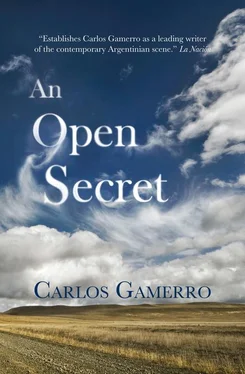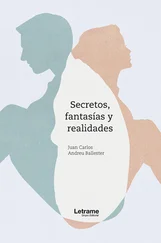Without the slightest spirit of scientific rigour, but merely as a wry wink at the sometimes tortuous paths that lead to our destination by means of chance, it is worth noting that this meaning of the original name of the place, first revealed by myself here, Pedernal, or ‘place of flint’, seems in some way to herald or prefigure the name of the man who would become the town’s founder, Colonel Urbano Pedernera. […] In Gagliardi, B, MALIHUEL: etimología de un topónimo santafesino . Cámara de Diputados de la Prov. de Santa Fe, Offprint of Homenaje al IV Centenario de la Fund. de Santa Fe, 1973.
1993 POSTSCRIPT: (3 )Twenty years on, I am compelled to denounce my own thesis, which had met with widespread approval due perhaps more to my colleagues’ intellectual sloth and negligence than to any intrinsic merit of its own. It is understandable that an ‘n’ may have vanished in its passage through so many mouths, but that the final ‘l’ should have appeared by the grace of the Holy Ghost is unacceptable from any point of view that claims scientific status. Perhaps blinded by the naive parochialism of the times, I never paid heed to the term HUELE or HUELDE, which P J Venom’s dictionary of 1966 provides as meaning ‘ill-fated’ or ‘unfortunate’. We inevitably return, then, to the idea of the prefix meli-, meaning ‘four’, which, coupled with ‘huele’ would give MELIHUELE — MELIHUEL — MALIHUEL: meaning ‘four unfortunate wretches’, where ‘four’ has a generic rather than a strictly numerical value of scarcity or poverty, as in the Spanish expressions ‘four crazy cats’, ‘four poor devils’, etc. Of all the hypotheses put forward, this one is not only the most linguistically viable, but also the only one that can be verified empirically. I am still searching for the flints of my earlier hypothesis; however, the prophetic nature of the word with which the legitimate occupants of these lands for ever branded the moral standards of those who would later usurp them brooks no reply. In conclusion, I am now in a position to state the definitive etymology of the place name, ‘Malihuel’: MELIHUELE — MALIHUEL: ‘four crazy cats’, ‘four poor devils’—a paltry collection of pathetic and/or contemptible individuals.
1) P Hux Meinnado: La Capital newspaper. Rosario, 25/05/1970. Quoting Stieben Enrique: Toponimia Araucana . p. 104. La Pampa. 1966.
2) Rosas, Juan Manuel de: Gramática y Diccionario de la lengua Pampa . Suarez Caviglia & Stieben. Ediciones Albatros. 1947.
3) Author’s note: This postscript does not feature in any of the editions of Prof. Gagliardi’s noted study and, therefore, makes its appearance in printed form for the first time here. It appears in an addendum in his own handwriting at the end of the revised version, which, shortly before his regrettable passing, he was about to send to press.
“TOWN OF COWARDS, TOWN OF SCOUNDRELS,” mutters Professor Gagliardi in the interview he finally granted me at his house on the outskirts of town, and within whose book-lined walls he has decided to shut himself away from life. “It’s no coincidence the first settlers were Indian-butchering milicos . The gringos came later, when the dirty work’d been done, my great-grandfather amongst them. But all in all they were real men and women, capable of sticking to their guns and seeing their rights were respected, of standing up to authority; not like this rotten rabble toiling and crawling out there. And they ask me why I’ve decided to take refuge within these walls. Give them the pleasure of turning their backs on me again, giving me the cold shoulder, the way they did with your father, and your grandmother? Can you believe, dear boy, that when I was removed from my post, when that gutless Scuppa came to me with his Benjamin I implore you to understand me, in this day and age, your stay at this institution … no one, not even my colleagues, not even my neighbours, who’d all been students of mine every last one of them, or parents of my current students, stuck up for me or at least expressed their sympathy? Do you know what they used to say? He always had been a bit of a communist that Gagliardi, that’s what they used to say. Because every twenty-fifth of June I used to talk about the Cry of Alcorta, because at one prize-giving ceremony I suggested the true foundation was when the entire town confronted Comandante Pedernera and paraded him through the streets naked. Do you know something dear boy?” the Professor asks me, pacing restlessly around the room as if in an imaginary classroom. “It doesn’t sadden me that they’ve welded the Comandante’s statue. He represents us a lot better than before the way he is now. What was once an authentic popular festival had all too long ago become a hollow ceremony, a self-indulgent show by farmers and shopkeepers of false nostalgia for a rebellious past that was never really theirs. It was highly appropriate that the last Malihuense to knock the Comandante off his horse was your dear grandmother. The rest of us had lost that right long ago. And I’ll tell you something else. When the flood looked as if it would wipe us off the map once and for all, I was secretly glad. I’d always thought what they did to your father and your dear grandmother was quite unforgivable. I asked myself what God was waiting for to wipe this Santa Fe Sodom off the face of the pampas. Which was why I wasn’t sorry when the waters came, despite the loss of some of the most prized volumes in my collection. Even so, it’s still one of the most complete libraries on the history of the province, as you can see. In better times I used to travel to Rosario regularly, and to Buenos Aires, where I’d buy in bulk at auction, or rummaging through the second-hand bookshops on the Avenida de Mayo or in the stalls in Parque Rivadavia … Luckily, not all the schools in the area shared the timorousness of our spineless principal, and I was able go on teaching in other towns until I retired. I haven’t much money now to go on buying books, but instead I’ve found the necessary time to read them and to write. I can dig up a copy of my two articles about the town if you’re interested, but you’ll have to be a little patient because as you can see …” While Professor Gagliardi, with faltering hands, rifles through the nearest pile of lever-arch files and folders, as high as the chair back they’re leaning against, I again run my eyes over the volumes packing the shelves — running vertically and horizontally from the water-warped parquet to the added rows that scrape the blotchy ceiling, beyond the last shelf. Books whose cardboard and paper time has turned yellowish and brittle, covers once green, red or orange turned to moss, ochre and terracotta — textures that from a distance suggest parchment, papyrus and old silk. Editions by Claridad, Calomino, Tor, Americalee, Anteo, Losada, Eudeba, Solar — the years of forced coexistence making their covers uniform and possibly their contents too: fierce polemics and oppositions undifferentiating themselves on their way to becoming that bland and indefinable thing some people call “period flavour”. Perhaps from so much reading Professor Gagliardi had ended up believing in history in the same way Don Quixote believed in literature. He now sets about another equally formidable pile, growls, talks to himself, scolds the papers he’s trying to find for refusing to appear. “One’s on the history of the fort, it was published in the minutes of the first congress on the history of the towns of the … The other one, the older one, on the etymology of the name Malihuel … I wanted to include a revision, for the time being it’s in manuscript form, if I manage to get it republished … Let me see, let me see, here it is I think … No, it isn’t here either.”
Читать дальше












